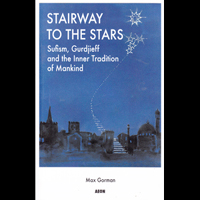Sufism
Sufism is often described as the esoteric core of Islam, but in essence it represents a universal teaching of spiritual awakening transcending religious forms.
The Sufis
Idries Shah
Doubleday & Co. (1964)
The Sufis is generally considered the most authoritative introduction to Sufism yet published in the West. Idries Shah discusses the history of Sufism, its impact on the Western world, the major teachers of the tradition and central concepts of Sufi psychology and spirituality in this important volume.

The Way of
the Sufi
Idries Shah
Penguin Books (1968)
Drawing from a wide selection of Sufi teachers and classical writings, Shah provides a unique introduction to a body of thought vitally relevant to the contemporary world. He discusses the study of Sufism in the West and surveys the important teachers and orders of the Sufi tradition.
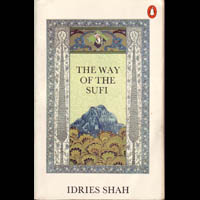
Among the
Dervishes
O.M. Burke
E.P. Dutton (1973)
On the surface this is an engaging travel book which follows the author through North Africa, Turkey, the Middle East, Pakistan and Afghanistan. Burke encounters a number of contemporary Sufi teachers and learns many of the fundamental precepts of this mystical teaching.
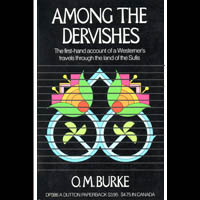
Learning
How to Learn
Idries Shah
Harper & Row (1978)
Employing logical thought and common sense, Shah offers insightful discussions of the role of Sufism in illuminating current human, social and spiritual problems. Shah draws upon a variety of Eastern and Western sources, both classical and contemporary, to further his discussion.
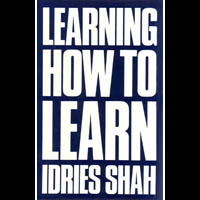
The
World of the Sufi
Idries Shah, ed.
Octagon Press (1979)
The book is a broad collection of studies of Sufis and dervishes past and present, and their influence on religion, science and psychology. Major thinkers in the field such as Doris Lessing, Peter Brent and Arthur Deikman are contributors.
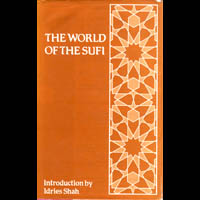
The
Sufi Mystery
A.P. Archer, ed.
Octagon Press (1980)
This anthology brings together writings by scholars, historians and contemporary Sufi teachers. Sufi theories and practices are examined, visits to teaching centres are described and the relationship between spiritual teacher and disciple investigated.
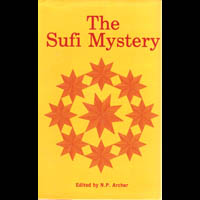
Seeker
After Truth
Idries Shah
Octagon Press (1982)
Seeker After Truth is a compendium of essays, teaching tales, letters, lectures and discussions. Shah clarifies a broad spectrum of spiritual concerns and provides timely instruction for those travelling the path of wisdom.
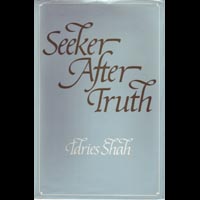
Journeys
with a Sufi Master
H.B.M. Dervish
Octagon Press (1982)
The book is an account of the author's extensive travels throughout the East and West in search of authentic spiritual teachings. It provides a glimpse into the inner workings of the world-wide Sufi organization responsible for transmitting essential knowledge and practices to the contemporary world.
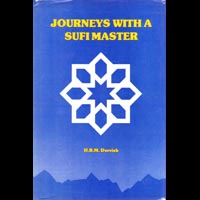
A
Perfumed Scorpion
Idries Shah
Octagon Press (1983)
The book contains lectures, teaching stories and illustrative anecdotes from everyday life to direct attention to patterns of self-deception and conditioning which inhibit learning and prevent spiritual growth.

Sufi
Thought and Action
Idries Shah, ed.
Octagon Press (1990)
This anthology of papers and monographs covers the diversity of Sufi ideas and activities in many countries and cultures. The collection surveys seminal ideas of Sufi spirituality from a wide variety of perspectives.

Living
Presence
Kabir Helminski
Jeremy Tarcher (1992)
Helminski is an important translator of Sufi literature and a teacher in several Sufi orders. Through stories, sayings and personal experience, he integrates the traditional wisdom of Sufism with the needs of contemporary life.
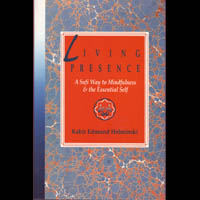
Sufism
for Today
Omar Ali-Shah
Alif Publishing (1993)
Sufi teacher Omar Ali-Shah (brother of Idries Shah) describes the Sufi path of transformation of the self in this collection of talks given to study groups throughout the world. Ali-Shah's approach is grounded in simplicity and common sense.
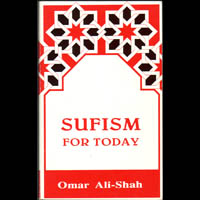
The
Sufi Tradition in the West
Omar Ali-Shah
Alif Publishing (1994)
This volume is comprised of a series of talks given by Ali-Shah to students from around the world. The compatability of ancient Sufi teachings with the needs of the contemporary Western world is stressed.
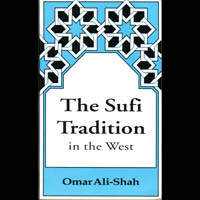
The
Commanding Self
Idries Shah
Octagon Press (1994)
In Sufi terminology, the 'Commanding Self' is a mixture of primitive and conditioned responses which block human progress and understanding. This wide ranging book provides the material to overcome these barriers to higher perception and understanding.
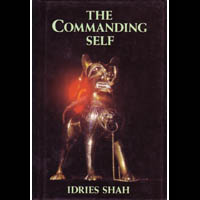
The
Teachings of Kebzeh
Murat Yagan
Kebzeh Publications (1995)
Murat Yagan is a contemporary Sufi teacher who lived in British Columbia until his death in 2013. Through dialogue, stories, explanation and example, Yagan transmits the wisdom of Kebzeh, an ancient spiritual tradition centered in the Caucasus mountains.
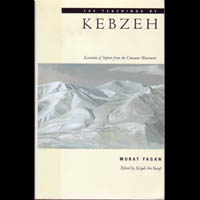
The
Course of the Seeker
Omar Ali-Shah
Tractus Books (1996)
The Course of the Seeker consists of carefully edited transcripts of talks and dialogues between Ali-Shah and his students. The book presents a wide range of ideas and practices relevant to today's spiritual seeker.
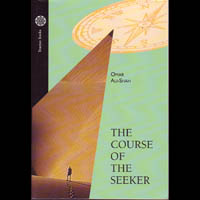
Essential
Sufism
James Fadiman and Robert Frager, eds.
Harper (1997)
Essential Sufism is a collection of stories, fables and aphorisms drawn from the rich tradition of Sufi teaching. Writings by Rumi, al-Ghazzali, Jami and other great Sufis are arranged by themes such as Opening the Heart, Service and God.
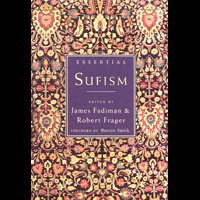
The
Rules or Secrets of the Naqshbandi Order
Omar Ali-Shah
Tractus Books (1998)
Omar Ali-Shah explores the central concepts of the Naqshbandi Order of Sufism and relates them to the needs of the contemporary world. The 'Rules' are a framework for spiritual self-work and have been artfully applied in the East for many centuries.
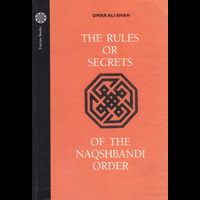
Knowing
How to Know
Idries Shah
Octagon Press (1998)
Knowing How to Know illuminates the unrecognized barriers which prevent knowledge and understanding both in everyday life and on the spiritual path. Shah challenges our belief systems through teaching stories, humour, questions and answers, and aphorisms.
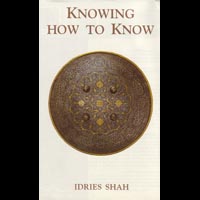
Heart,
Self & Soul
Robert Frager
Quest Books (1999)
Western psychologist and Sufi sheikh Robert Frager explores the spiritual tradition of Sufism as a path for personal growth. Stories, poetry, meditations, journaling exercises and everyday examples are woven together to capture the essence of Sufi teaching.
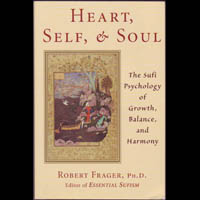
Jesus the
Sufi
Max Gorman
Crucible Publishers (2007)
The author presents Jesus as a representative of an ancient universal and continuing wisdom tradition sometimes identified with the Sufis. He interprets many of Jesus’ parables, sayings, actions, miracles and ideas (resurrection, son of God, baptism) from a higher evolutionary spiritual perspective.
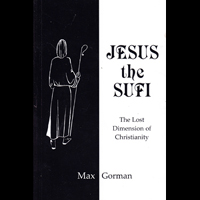
Sufism and
the Way of Blame
Yannis Toussulis
Quest Books (2010)
Dr. Toussulis is both a scholar and student of Sufism and he brings both of these qualifications to this engaging study of the controversial and misunderstood ‘Path of Blame’ within Sufism. He offers insights into the teachings of G.I. Gurdjieff, Idries Shah, Frithjof Schuon and others as he frames their teaching endeavors in the context of contemporary cultural needs and conditions.
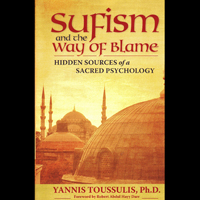
Stairway to
the Stars
Max Gorman
Aeon Books (2010)
In this concise volume, subtitled “Sufism, Gurdjieff and the Inner Tradition of Mankind,” Gorman presents the thesis that, from time immemorial, certain men and women have developed themselves to a spiritual level whereby they can help others ascend the mystical stairway to human completion and enlightenment.
